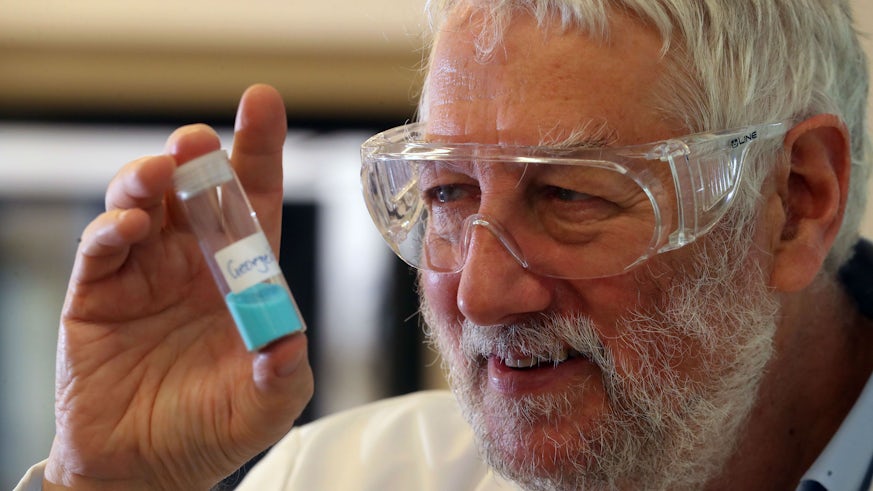Golden award for pioneer of catalysis
8 May 2018

Professor Graham Hutchings, Director of the Cardiff Catalysis Institute, has been awarded the prestigious Faraday Lectureship Prize by the Royal Society of Chemistry.
The prize has been awarded for Professor Hutchings’ exceptional contributions to the field of chemistry, and more specifically for his seminal investigations into gold catalysts.
Professor Hutchings joins a long list of notable recipients in the award’s 150-year history, including Dmitri Mendeleev, Ernest Rutherford and Niels Bohr.
He will recieve £5,000 and a medal, and will complete a UK lecture tour.
Commenting on the award, Professor Hutchings said: “I am deeply honoured to have the work on gold catalysis recognised with this award; it is a prize that has a great history dating back to 1869 and to be included amongst the long list of distinguished recipients is indeed wonderful.”
Among his many successes, Professor Hutchings’ most valued discovery is that the precious metal gold has the remarkable ability to catalyse reactions much more efficiently than others that are used in industry.
This discovery has spawned thousands of published papers and patents all around the world and has made Professor Hutching’s one of the most cited researchers in the field of chemistry.
As a result of Professor Hutchings’ pioneering work, a gold catalyst is now being produced at a purpose built factory in China by global chemicals company Johnson Matthey in order to catalyse the production of vinyl chloride – the main ingredient of PVC.
This is the first time in over 50 years that a complete overhaul in catalyst formulation has been implemented to produce a commodity chemical.
More significantly, the gold catalyst has replaced an extremely harmful mercury catalyst that was previously used in this particular production process. Mercury is extremely toxic and becomes volatile during this process and can therefore make its way into the surrounding environment. The WHO has declared it as a significant threat to human health.
The Minamata Convention on Mercury, a binding international treaty signed by nearly 140 countries in 2013, contains a specific clause on vinyl chloride, stating that after 2022, all plants producing vinyl chloride must go mercury-free.
Current estimates suggest that 20 million tonnes of vinyl chloride could be manufactured each year using the gold catalyst.
“The replacement of mercury by gold as a catalyst for PVC manufacture will have immense benefits for society and I look forward to presenting the latest developments of gold catalysis during the lecture tour,” Professor Hutchings continued.
At the end of last year Professor Hutchings was awarded the Advanced Environmental Solutions Prize from the Italian company ENI the development of an alternative to mercury.
Described as the ‘Nobel Prize of energy research’, the ENI awards are one of the top prizes for researchers in the field of energy and environmental science.

